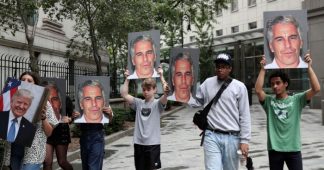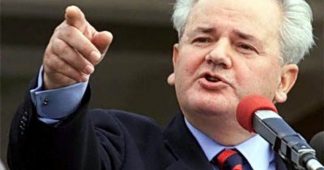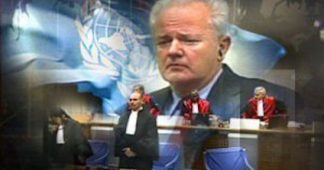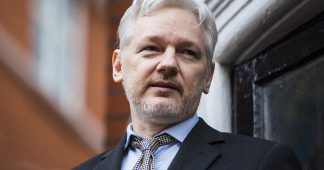By Patrick Martin
12 August 2019
Let’s begin by stating the obvious: Jeffrey Epstein’s violent death in a Manhattan jail cell prevents a trial or a plea deal that threatened to expose business associates and political enablers who made use of the services provided by his alleged sex-trafficking activities, or who profited from this and other sordid operations of the multimillionaire money manager.
Given the extraordinary circumstances surrounding his death, the efforts of the media—and the New York Times in particular—to dismiss out of hand any suggestion that Epstein’s death was the result of anything but a suicide reek of a high-level cover-up. Whether he was strangled in a jail cell by a hired killer or allowed to hang himself is almost beside the point.
Epstein’s life came to a violent end while in the custody of the US government. This is an undeniable fact. Even if he committed suicide, the act could not have succeeded without the direct complicity of those who were responsible for his safety.
And while Epstein was accused of deplorable crimes, it should hardly be necessary to point out that he—yes, even Epstein—had the right to a vigorous defense in a trial. That his untimely death preempts and prevents the trial from taking place is a matter of staggering seriousness.
The suspicion of homicide is clearly justified. That Epstein was murdered—whether by an assailant or by the calculated enabling of his jail cell suicide—is far more plausible than the official account of what took place at the Metropolitan Correctional Center over the past three weeks. According to prison officials, Epstein was found hanged in his cell Saturday morning. His guards had neglected to perform their every-half-hour inspection during the night and only belatedly took a look at their prisoner at 6:30 a.m.
This occurred even though Epstein was arguably the most notorious prisoner currently in federal custody, with his arrest on sex-trafficking charges given saturation coverage in the New York and national media. Moreover, he had been placed on suicide watch from July 23, when he was reportedly found unconscious in his cell with marks on his neck, until July 31, when the special provisions, including 24/7 surveillance, were lifted without explanation.
Epstein’s attorneys and other visitors said they saw no signs that the multimillionaire was in low spirits or likely to take his own life, and he had been participating in preparations for his legal defense in an upcoming trial for as much as 12 hours a day.
Investigations have now begun by the Federal Bureau of Prisons, Attorney General William Barr and the Justice Department inspector general, all of whom have ample reason to rig the result and cover up what really happened. So far, the most elementary facts have been withheld from the public. It has not been reported how and with what material Epstein was hanged, or whether there is a video recording of his cell that would show the alleged “suicide” or otherwise shed light on the physical circumstances of his death.
The legal and political circumstances of Epstein’s death are a different matter; they strongly suggest that Epstein had become a danger to an entire section of the Wall Street and political elite, who had a powerful motive to silence him.
The media has quickly moved to denounce anyone who points to the obviously concocted character of the official story as the promoter of a “conspiracy theory.”
The New York Times is aggressively promoting the official claims of suicide. The newspaper’s editorial Sunday begins, “By apparently committing suicide in his Manhattan jail cell on Saturday morning, Jeffrey Epstein spared himself a lengthy trial that could have sent him to prison for the rest of his life on federal sex-trafficking charges.”
The use of the word “apparently” is entirely out of place. In the absence of any details relating to this death, nothing is “apparent.” The Times is simply conditioning the public to accept the suicide narrative without an urgently required criminal investigation into Epstein’s death, which must be considered suspicious.
Furthermore, why does the Times state that Epstein was “spared” a trial? Do the editors have information that supports their assumption that Epstein did not want to have a trial? What about the possibility that his death “spares” other powerful and influential people from having their connections to Epstein’s proven and alleged criminal activities, either sexual or financial, brought into the public eye by a lengthy legal proceeding
Published at https://www.wsws.org/en/articles/2019/08/12/epst-a12.html











